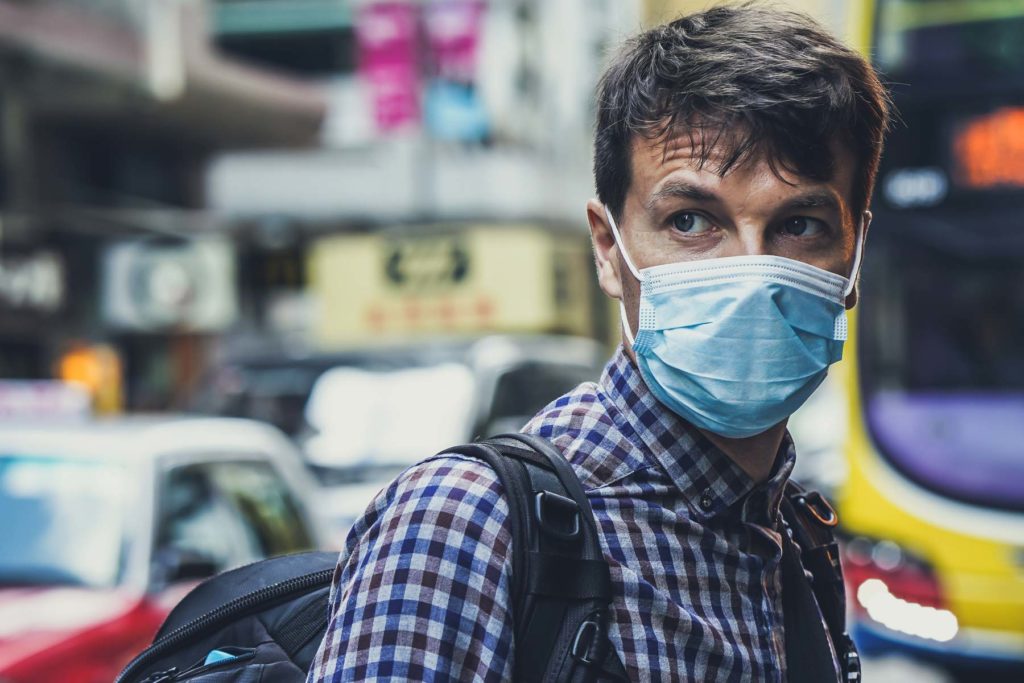You’re going to be surprised by what’s worrying me more than anything else these days: I’m finding it harder and harder to trust information from the federal government.
It’s hard to when the lying tweeter-in-chief politicizes everything. Fomenting distrust—intentional or by bluster—will be one of the lasting effects of Trump’s presidency, Fox News, and the ongoing 40-year assault on government.
But the flip side of that is that no one—not even the fiercest libertarian—can deny that government action is our only chance at slowing the spread of a public health crisis like coronavirus.
To do so, we have to take the word public in “public health” seriously.
Public means all of us—documented, undocumented, rich, poor, black, brown, white, gay, straight. In other words, everyone.
If one of us isn’t safe and secure, then none of us are. That goes not only for coronavirus but also the flu, cancers, and the myriad of other hidden public health problems playing out in slow motion across the country.
If public means all of us, then coronavirus makes crystal clear that:
- Everyone needs health care they can afford, which means co-pays and deductibles shouldn’t get in the way of purchasing medicines, seeing a doctor, or getting care.
- Every working person needs to be paid for sick days. None of us can afford the risk of a sick person going to work because they have to pay the rent.
- We need safeguards and standards to ensure that food and medicine are safe and secure.
- We need professionals on the job in public health agencies, schools, and other public institutions to make sure everyone has the accurate and trusted info they need to protect themselves (and ignore misinformation, conspiracy theories, and reckless tweets.)
- We need to make sure our drinking water is clean and safe and our wastewater doesn’t spread disease or pollute.
Of course, Trump will very likely double down on misinformation—and worse, on blatant partisanship, xenophobia, and immigrant bashing. His administration will look for every opportunity to deny public responsibility and elevate private power and market goods over public goods.
For example, Health and Human Services Secretary Alex Azar recently refused to promise a coronavirus vaccine will be affordable for anyone: “We would want to ensure that we work to make it affordable, but we can’t control that price, because we need the private sector to invest … Price controls won’t get us there.”
He’s wrong, and I believe most people would agree.
In fact, with Ebola, licensing public research to a private drug company resulted in a vaccine not being publicly available until a full-blown outbreak made it profitable for the company.
What’s really scary is the dearth of resources now available to public health agencies—because of, you guessed it, austerity. Decades of budget cuts at local departments have thinned staff, equipment, and adequate plans. Almost a quarter of the local public health workforce has been lost since 2008.
So, what’s the public solution?
Some state and local governments have moved into action. Colorado has directed health insurers regulated by the state to waive copays, deductibles, and other charges for coronavirus tests. On Tuesday, Missouri sent hand sanitizing liquids and wipes to all of the state’s 357 polling places.
But we need more than that. We need fully resourced public health systems. We need universal health insurance so that no one is left out. We need rules and standards to ensure that everyone who’s sick can afford to miss days of work. We need investments in water infrastructure so that everyone has clean water. And, most of all, we need everyone to pay their fair share for the public goods we all rely on.
As the Institute on Taxation and Economic Policy’s Amy Hanauer writes, “We as a country have the resources to address collective problems. But solving them requires that we pull together, raise taxes on those most able to pay, and fund public servants to act in our collective interest.”
Bottom line: protecting the public health of all us requires protecting the health of each of us, without exception.
